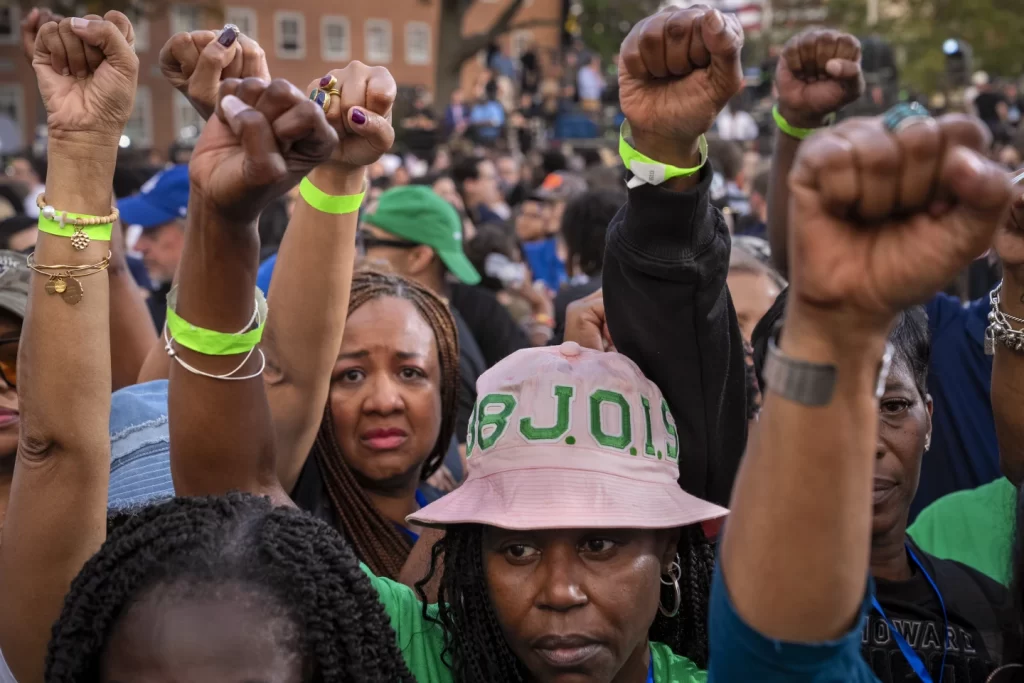
ATLANTA — As she checked into a recent flight to Mexico for vacation, Teja Smith chuckled at the idea of joining another Women’s March on Washington.
As a Black woman, she just couldn’t see herself helping to replicate the largest act of resistance against then-President Donald Trump’s first term in January 2017. Even in an election this year where Trump questioned his opponent’s race, held rallies featuring racist insults and falsely claimed Black migrants in Ohio were eating residents’ pets, he didn’t just win a second term. He became the first Republican in two decades to clinch the popular vote, although by a small margin.
“It’s like the people have spoken and this is what America looks like,” said Smith, the Los Angeles-based founder of the advocacy social media agency, Get Social. “And there’s not too much more fighting that you’re going to be able to do without losing your own sanity.”
After Trump was declared the winner over Democratic Vice President Kamala Harris, many politically engaged Black women said they were so dismayed by the outcome that they were reassessing — but not completely abandoning — their enthusiasm for electoral politics and movement organizing.
Black women often carry much of the work of getting out the vote in their communities. They had vigorously supported the historic candidacy of Harris, who would have been the first woman of Black and South Asian descent to win the presidency.
Harris’ loss spurred a wave of Black women across social media resolving to prioritize themselves, before giving so much to a country that over and over has shown its indifference to their concerns.
AP VoteCast, a survey of more than 120,000 voters, found that 6 in 10 Black women said the future of democracy in the United States was the single most important factor for their vote this year, a higher share than for other demographic groups. But now, with Trump set to return to office in two months, some Black women are renewing calls to emphasize rest, focus on mental health and become more selective about what fight they lend their organizing power to.
“America is going to have to save herself,” said LaTosha Brown, the co-founder of the national voting rights group Black Voters Matter.
She compared Black women’s presence in social justice movements as “core strategists and core organizers” to the North Star, known as the most consistent and dependable star in the galaxy because of its seemingly fixed position in the sky. People can rely on Black women to lead change, Brown said, but the next four years will look different.
“That’s not a herculean task that’s for us. We don’t want that title. … I have no goals to be a martyr for a nation that cares nothing about me,” she said.
AP VoteCast paints a clear picture of Black women’s concerns.
Black female voters were most likely to say that democracy was the single most important factor for their vote, compared to other motivators such as high prices or abortion. More than 7 in 10 Black female voters said they were “very concerned” that electing Trump would lead the nation toward authoritarianism, while only about 2 in 10 said this about Harris.
About 9 in 10 Black female voters supported Harris in 2024, according to AP VoteCast, similar to the share that backed Democrat Joe Biden in 2020. Trump received support from more than half of white voters, who made up the vast majority of his coalition in both years.



